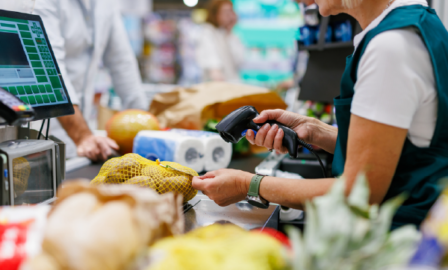What to Consider Before an SAP Implementation for Grocery
Few industries have experienced the sheer volume of widespread disruption that’s impacted the grocery space over the last few years. From the COVID-19 pandemic to global supply chain disruption to changing shopper habits to rising inflation rates, grocery retailers have felt – and continue to experience – a significant impact. For businesses looking to enhance their business processes and better respond or adapt to these industry challenges, SAP S/4HANA for Retail could be an effective solution. However, there are a variety of factors for clients to think about when considering an SAP implementation for grocery.
Transformation Drivers: SAP Implementation for Grocery
When thinking about implementing SAP for your grocery business, you need to consider the main drivers of this transformation. Is your business looking to move digital? Are you growing quickly? Is there a certain level of complexity to your business? Or, perhaps you’re on an outdated, no-longer-supported technology. Whatever the reason may be, companies need to create a business case when thinking about an SAP implementation and transformation. For those in the grocery space, the consumer’s leap to digital channels will necessitate many of the capabilities that come inherent to SAP.
Change Readiness and Management
Is your business ready for the change, and how much change can you actually handle at one time? Are there other competing priorities or projects that might be happening concurrently that could put extra strain on your employees? As labor challenges continue to vex retailers of every type, grocery businesses will need to consider what, if any, impacts an SAP implementation will have to their storefront employees. In many cases, the overall transformation effort, while challenging at times, can enable greater autonomy and agility for your frontline workers and allow them to better serve shoppers.
This type of transformation will need to be the highest priority for the company while it’s in flight; otherwise, when push comes to shove, it could be set to the side – deadlines are then missed, timelines are thrown off, and a snowball effect occurs that might completely upend the transformation.
Additionally, think about your business’s culture. Are your employees generally open or resistant to change? Remember, effective organizational change management is key to all successful SAP implementations. Without true OCM efforts, you run the risk of an unsuccessful SAP implementation.
Operational Models
Before pursuing an SAP implementation for grocery, think about the type of operational model you’ll want to use to support the system after go live. Will you use in-house capabilities or outsource to an application managed services (AMS) provider?
Depending on the direction you want to take, it’s advisable to start building out these in-house capabilities or working with that AMS throughout the implementation to increase effectiveness and efficiency. This will ensure the models are ready when you turn over maintenance of the system.
Minimizing Customizations and Costs
With any SAP implementation, you’ll want to minimize customizations and leverage the cloud if you can. These principles can help keep overall costs – and maintenance – to a minimum – and prevent a lot of headaches down the road. Most companies say they can and will adhere to these principles, but few actually do when it’s time to execute.
Data, Data, Data
Lastly, you can’t forget or underestimate the data involved with an SAP implementation – the conversion, the quality, and the magnitude of effort that it adds to a project.
The grocery industry is at a proverbial crossroads. The COVID-19 pandemic served as the spark for a wildfire of change and disruption in the industry that can never be undone. Shopper habits have irrevocably changed and now mandate a more agile and flexible organization. Realizing the capabilities necessary to compete in today’s market will require a digital technology foundation.
At Clarkston Consulting, we tailor our SAP implementations to the client’s specific needs. Contact our team of SAP retail experts today to learn more.
Subscribe to Clarkston's Insights



